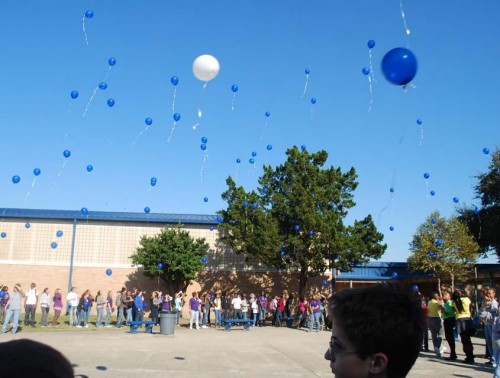
Chabert comes to aid of fellow workers’ families
November 23, 2010
LPSO deputies remembered via bike tour
November 25, 2010Martin Rinkert was a minister in the town of Eilenburg, Germany, in the early 1600s. He was the son of a poor coppersmith, but managed to work his way and acquired an education. In 1617 he was offered the position of Archdeacon in his hometown parish. A year later, what has become known as the 33 Years War broke out, and his town was caught right in the middle.
In 1637, the massive plague that swept across the continent hit Eilenburg. People died at the rate of 50 a day, and Martin had to bury most of them.
More than 8,000 people died, including Martin’s wife. His labors finally ended about 11 years later, just one year after the war.
Martin’s ministry spanned 32 years, all but the first and the last overwhelmed by the great conflict that engulfed his town.
How could Martin Rinkert be thankful with all the pain and sorrow he endured? Yet it is he who wrote the familiar hymn, “Now Thank We All Our God”:
Now thank we all our God
With heart and hands and voices
Who wondrous things hath done
In whom his world rejoices
Who from our mothers’ arms
Has blessed us on our way
With countless gifts of love,
And still is ours today.
O may this bounteous God
Through all our life be near us,
With ever joyful hearts
And blessed peace to cheer us;
And keep us still in grace,
And guide us when perplexted;
And free us from all ills,
In this world and the next.
How could he be so thankful? Perhaps the secret lies in the daily prayer that he had memorized and repeated every day of his adult life:
“Thank you, Lord, that you chose to open my eyes this morning and give me the gift of life for one more day. May I remember this day that every breath I breathe has its origin in your grace.
“Thank you, Lord, that whatever this day holds, my time is in your hands to use me as you see fit. I have no plans of my own. May each moment be lived in praise and thanksgiving to your name.
“Thank you, Lord Jesus, that you have redeemed me by your precious blood that I live today forgiven although I know I will fail, that this war or the plague cannot take the life you have given me for eternity.
“Thank you, Father, that you have given me strength and courage today to be a comfort to those who are suffering. May I seek to be the one who comforts rather than the one who is comforted.
“Thank you, Father, that although I do not have the power to bring peace to this war-torn village, I do have your gift of peace to give to each heart one person at a time.
“Thank you, Lord Jesus, that in the midst of hatred and killing, nothing today can separate me from your love, not life or death, not principalities or powers, not hindsight or depth. May I show that love even to my enemies.
“Thank you, Lord, that although I may not see any reason to hope today that in my heart you are my living hope. May I walk by faith and not by sight.
“Thank you, Lord, that I still have a voice with which to speak. May each word I say be a word of encouragement to those who are suffering rather than a word of despair.
“Now thank we all our God with hearts and hands and voices. Amen.”
Maybe we can adapt and adopt this prayer for our own morning prayer. Having an attitude of gratitude is a great way to get our mornings started.










